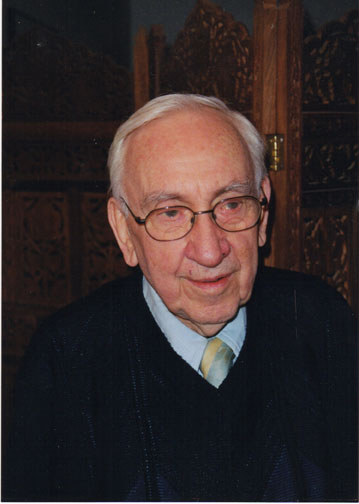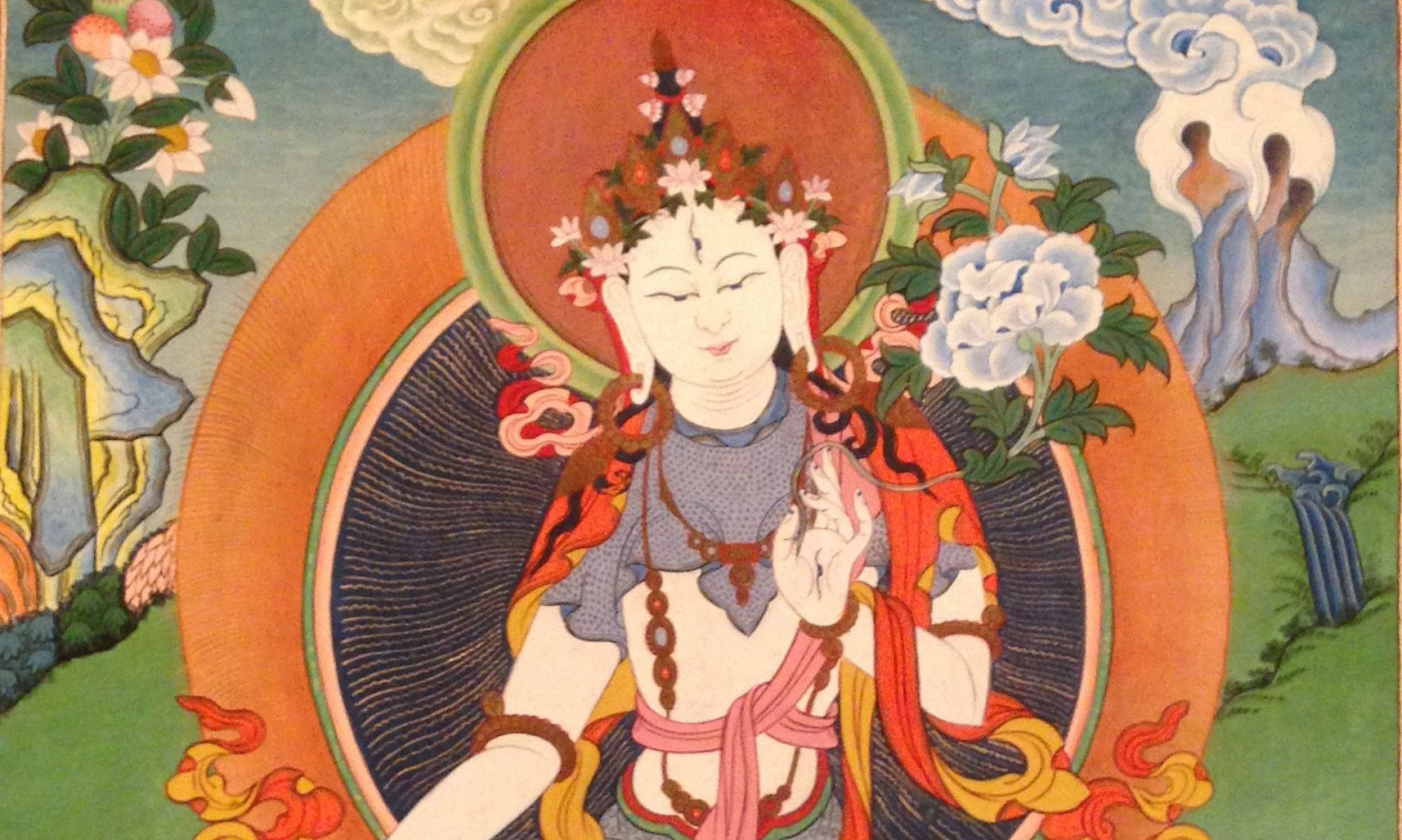
Herbert Guenther, world-renowned scholar and professor of Tibetan Buddhism, amateur musician, photographer, husband and father died in Saskatoon SK on March 11, 2006 of complications of diabetes. He was born March 17, 1917 in Bremen, Germany, son of the scupltor Reinhold Günther.
A frail child, he was fascinated from a very early age by the cultures of Southeast and Central Asia. He haunted the Asian section of Bremen’s Ethnographic Museum and devoured any books he could find on the exploration and history of those areas. His extraordinary talent for languages also became apparent early on. From a visiting Chinese engineer he learned Chinese when he was nine years old; by age ten he was tutoring Russian sailors in German in exchange for Russian language lessons.
He attended the Alte Gymnasium in Bremen; in addition to the regular curriculum of Latin, Greek and Hebrew, he studied Sanskrit by himself from grammar books someone had given to him. The list of languages would grow exponentially, until it was easier for family members to answer the question, “What languages does he know?”, by replying, “That’s more easily answered by listing the ones he doesn’t know.” By the time he began his studies at Munich University he read both Chinese and Sanskrit fluently and had written some papers on Sanskrit topics. For this reason he was allowed to study not only Vedic Sanskrit and Iranian Studies but also Pali, Prakrit and Sinhalese. Within three years he had fulfilled all the requirements for the Ph. D. and went to Vienna University, where he obtained his second doctorate (Dr. Phil. Habil) and taught for a few years.
In 1944 he married Dr. Ilse Rossrucker, a classics scholar, who was the lifelong collaborator in his work. They had two daughters: Edith Kimbell and Nora Szederkenyi.
From 1950 to 1962 he lived in India where he taught Russian at Lucknow University before becoming head of the Department of Buddhist and Tibetan studies at the Sanskrit University, Varanasi. Highpoints of those years were the annual three month summer vacations to escape the heat in the plains; the family would join one of the trading caravans that crossed the Rothang Pass from Manali to Lahul, and stay either as guests of the local ruler or at Shashur Gompa (monastery). There he studied intensively with local scholars and researched the texts in the library, some of which he copied out as facsimiles by hand, this being the days before Xerox; in later years he also made his own microfilms.
In 1964 he became Chairman of the Department of Far Eastern Studies at the University of Saskatchwan where he was known as a tough but stimulating teacher. An acerbic critic of any shoddy or derivative work not based on sources in the original languages — as psychologist, he trenchantly dismissed the “self-help industry” as “finish yourself off quickly” — he was always very generous with his immense erudition, eager to share his interests, while respecting solid intellectual accomplishment in fields unrelated to his own. He gladly encouraged both of his daughters to pursue their own interests without the slightest hint of disappointment that neither took up his own fields. His vast personal library included books from art to science and biology. With his students he had a sixth sense for offering just the encouragement and concrete, constructive criticism necessary. Many of them became lifelong friends.
A sought after lecturer, he was also visiting professor at the University of Toronto and Yale University. Following his retirement as Professor Emeritus he remained active as a scholar, still writing books and articles until his last hospitalization. He is the author of over thirty books and more than ninety scholarly articles.
He was a keen amateur flutist. Most evenings he would play chamber music with his pianist wife and friends; he especially enjoyed playing the Baroque trio sonatas and Classical concertos.
As long as his health permitted he enjoyed travelling especially during his sabbatical year in Japan in 1974. He loved hiking in the Rocky Mountains. On the trails he regularly outdistanced the other family members, which could cause problems because he had no sense of direction and had a knack of taking the wrong turn. Fortunately they were often able to catch up because he stopped to photograph, as he was an avid nature photographer.
Having grown up in wartime Germany he had a cynical disdain for all forms of political manipulation, and he was uncompromisingly and passionately opposed to all forms of militarism. He was a true scholar and Humanist.
